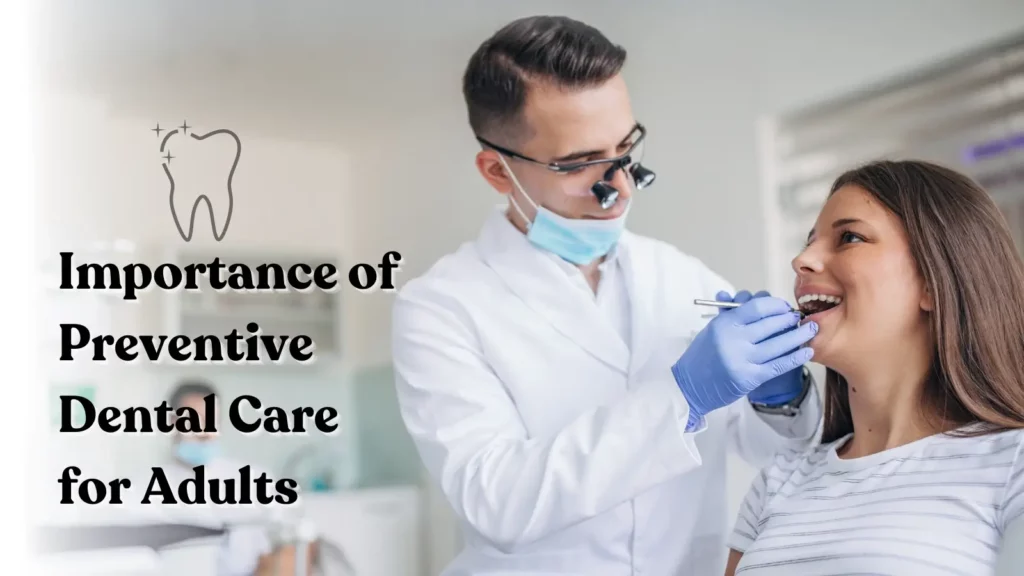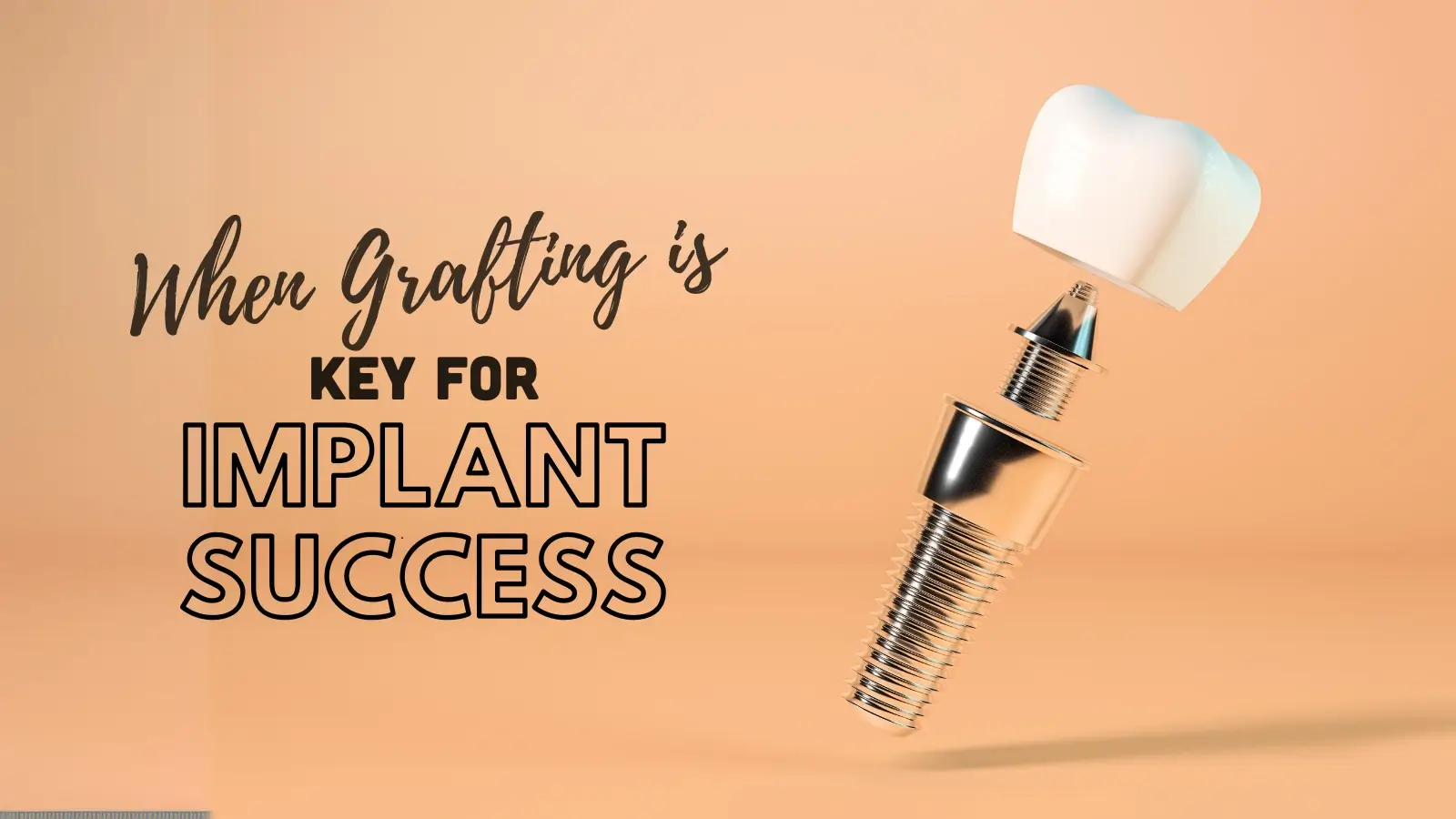Preventive dental care is essential for maintaining oral health and preventing serious issues. It becomes increasingly important for adults as age-related changes can lead to various dental problems.
Regular check-ups and cleanings can help detect issues before they escalate, ensuring a healthier smile. This topic matters because preventive care protects your teeth and enhances overall well-being.
Understanding Preventive Dental Care
Preventive dental care includes regular check-ups, cleanings, and screenings. These visits help maintain oral health by identifying potential issues early. Preventive care often involves professional cleanings to remove plaque and tartar and examinations to assess tooth and gum health.
Preventive care focuses on avoiding problems before they arise. In contrast, reactive care addresses issues after they occur. For example, visiting the dentist for a routine check-up can catch a cavity early. However, waiting until tooth pain develops often leads to more invasive treatment. Understanding this difference emphasizes the importance of preventive measures in maintaining long-term dental health.
Benefits of Preventive Dental Care
A. Early Detection of Dental Issues
One of the primary benefits of preventive dental care is the early detection of dental issues. Regular check-ups are crucial for identifying potential problems before they escalate. Dentists can spot issues such as cavities, which often begin as small spots on the enamel. If detected early, these can be easily treated with a filling.
Another common condition is gum disease, which may start with mild symptoms like bleeding gums. It can often be reversed with improved dental hygiene and professional cleanings if caught in its early stages.
However, if ignored, it can progress to more severe forms, leading to tooth loss and other health complications. Regular visits ensure you stay ahead of these issues, allowing for timely interventions that protect your teeth and gums.
B. Cost Savings
Preventive dental care is beneficial for your health and your wallet. The cost of routine dental check-ups and cleanings is significantly less than the expenses associated with extensive treatments for advanced dental problems.
Investing in preventive care reduces the likelihood of encountering these costly procedures. This approach saves money and minimizes the discomfort and stress associated with invasive treatments. Overall, preventive care is a wise financial strategy that pays off in the long run.
C. Improved Overall Health
Medical research is increasingly recognizing the links between oral health and overall health. Poor oral health has been associated with systemic conditions such as heart disease and diabetes. Bacteria from gum disease can enter the bloodstream, potentially leading to inflammation and increasing the risk of cardiovascular issues.
Moreover, individuals with diabetes are more susceptible to gum disease, creating a vicious cycle. Maintaining good oral health through preventive dental care can help reduce the risk of these serious health issues. Taking care of your mouth can lead to better overall health management, emphasizing the importance of regular dental visits.
D. Enhanced Quality of Life
A healthy smile can significantly enhance your quality of life. When you feel confident about your teeth, you are more likely to engage in social situations, speak freely, and smile without hesitation. Preventive dental care helps ensure your teeth remain strong and attractive, boosting confidence.
Social interactions often improve when you feel good about your smile. Whether in personal or professional settings, a healthy smile can positively influence how others perceive you and how you perceive yourself. In essence, preventive dental care protects your oral health and enriches your life in meaningful ways.
In summary, the benefits of preventive dental care encompass early detection of issues, cost savings, improved overall health, and enhanced quality of life. Prioritizing these practices can lead to a healthier, happier you.
Common Misconceptions About Dental Care
A. “I Don’t Need to See a Dentist if My Teeth Don’t Hurt”
Many believe they do not need dental visits unless they experience pain. However, many issues develop silently. Regular visits help catch problems early, even when you feel fine.
B. “Dental Visits Are Too Expensive”
Some view dental care as a financial burden. While treatment costs can be high, preventive care is often more affordable. Many insurance plans cover routine visits, making them a smart investment.
C. “Oral Health Is Only About the Teeth”
Some people think oral health only concerns teeth. In reality, it involves gums, tongue, and overall mouth health. Healthy gums and tissues are essential for a healthy mouth, emphasizing the need for comprehensive care.
Recommended Preventive Practices
A. Regular Dental Check-ups
Schedule regular dental check-ups every six months. During these visits, your dentist will examine your teeth and gums. They will also provide professional cleaning to remove plaque and tartar.
B. Daily Oral Hygiene Habits
Establish daily oral hygiene habits. Brush your teeth twice a day for two minutes each time. Floss daily to remove food particles between teeth. Consider using mouthwash for additional protection.
C. Diet and Its Impact on Oral Health
Pay attention to your diet, as it significantly affects your oral health. Limit sugary snacks and drinks that can lead to cavities. Focus on a balanced diet rich in fruits, vegetables, and whole grains for healthier teeth.
D. The Role of Dental Sealants and Fluoride
Consider dental sealants for extra protection, especially for children and teens. Sealants shield the back teeth’s grooves from decay. Fluoride also fortifies tooth enamel, increasing its resistance to decay.
Preventive dental care is crucial for maintaining oral health and overall well-being. Regular check-ups, good hygiene practices, and a healthy diet significantly prevent dental issues.
Prioritize your oral health by scheduling routine visits and adopting preventive measures. By doing so, you can enjoy a healthier, more confident smile. For more information on finding dental care, consult your local dental association or insurance provider.







